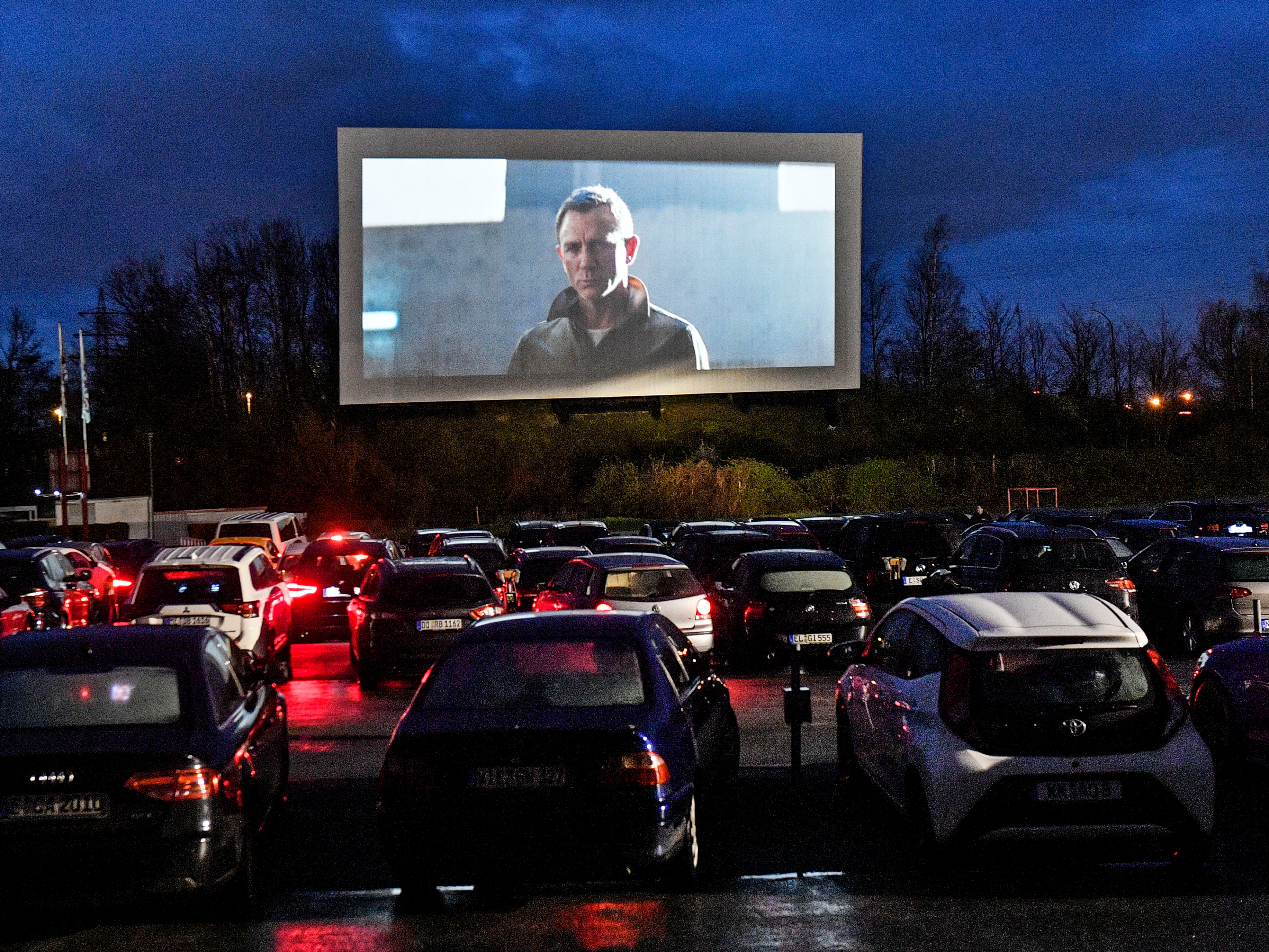- Drive-in movie theaters reached their peak popularity in the ’50s and ’60s – at one point, there were over 4,000 of them in the US – but they have been in decline ever since.
- Amid the coronavirus pandemic, many drive-ins have seen an uptick in business, as people see them as a safe way to leave the house but continue to self-isolate.
- Precautions some drive-ins are taking include cordoning off every other parking spot, sanitizing the bathrooms more regularly, and keeping concession stands closed.
- Visit Insider’s homepage for more stories.
Drive-in movie theaters are inherently nostalgic – from their neon signs to their retro spellings, like Starlite and Motor Vu.
In fact, they reached their peak popularity in the ’50s and ’60s, and have been in steady decline since then. Once numbering in the thousands, according to the United Drive-in Theatre Owners Association, there are only 305 operating drive-in movie theaters in the US today.
However, even as indoor theaters and other nonessential businesses close their doors, drive-ins remaining open (in places where lockdowns have not been introduced, or where drive-thrus or restaurant takeout windows are still operational) may be getting a new lease on life amidst the pandemic.
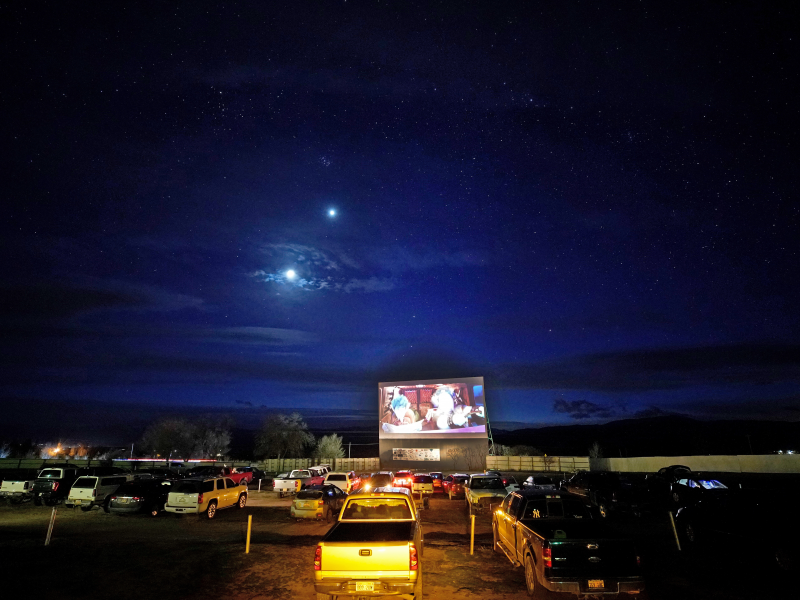
"Drive-ins could make a huge comeback this summer," box analyst Jeff Bock previously told Business Insider, especially as major movie releases are being pushed back
Blake Smith, owner of the Admiral Twin Drive-In in Tulsa, Oklahoma, as well as the Starlite Drive-In in Wichita, Kansas, says he's staying open as "a service to the community." He sees his drive-ins as a way for people to safely get out of the house while still practicing social distancing. "We really don't make much money on tickets, and I am volunteering to keep concession stands closed," he told Insider.
He said that the Starlite Drive-In, despite rain, was "busier than we would have been with that kind of weather." The Los Angeles Times reports that many owners of drive-ins in California, Kansas, Oklahoma, and Missouri saw an uptick in business recently.
Jack Ondracek, owner of the Rodeo Drive-In in Bremerton, Washington, describes lines going "down the side, across the front, out into the turn lane, and out onto the road for a quarter-mile." Staffed only for the number of people he usually sees in March, he said, "we were pretty overwhelmed by all of that."
He said that "the business last week was what we usually see in July and August, when the kids are out of school. It was a little bit crazy out here!" However, he closed shop on March 25, when the state ordered the closure of all nonessential businesses.
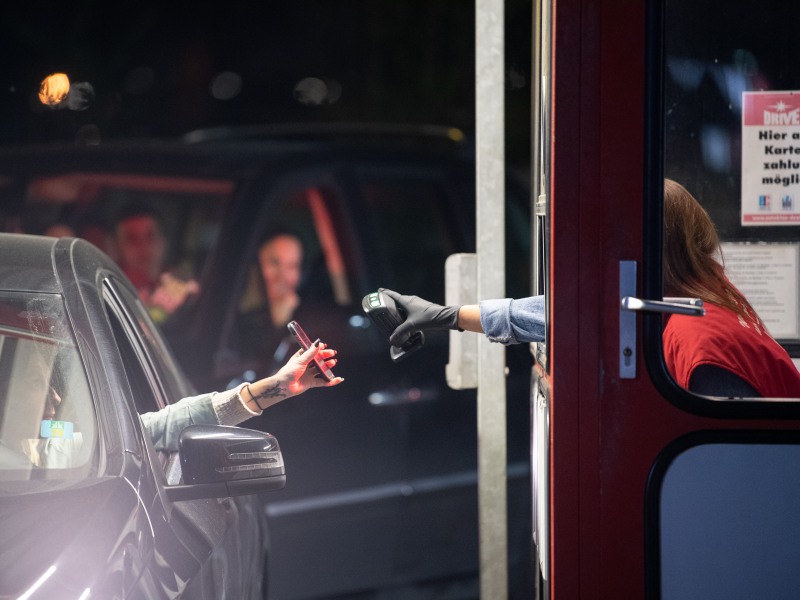
"We're in the same boat as everyone else now, but for a week there it looked like a good opportunity for everyone to get out. With schools being closed and the like, we have a lot of people looking for something to do, and the drive-in seemed to really fit that well," he said.
However, while Ondracek says he'd love to have remained open, he agrees with the shutdown, and wants everyone to remain safe. "It's a pretty pointed question, 'How do you see yourself being essential when the governor is trying to keep people apart?' Even if people are sitting in their cars, they're using community restrooms. This is something I want to be a positive experience, and I'd hate to be connected to some kind of an outbreak," he said.
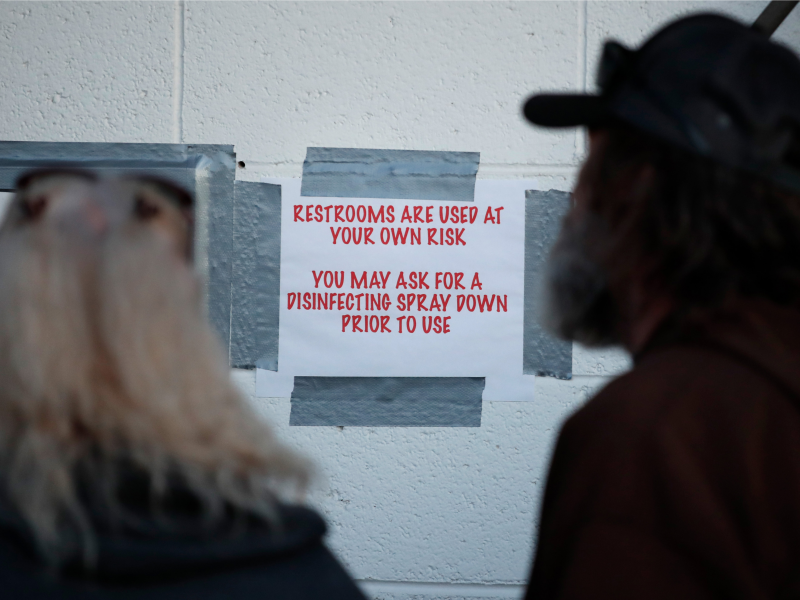
For John Watzke, owner of the Ocala Drive-In in Ocala, Florida, business is booming
Watzke estimates business has picked up 50 to 60%.
He says that usually around this time of year, with kids in school, his drive-in tends to suffer on weeknights. "But right now every night is the same as a Friday or Saturday this time of year," he said.
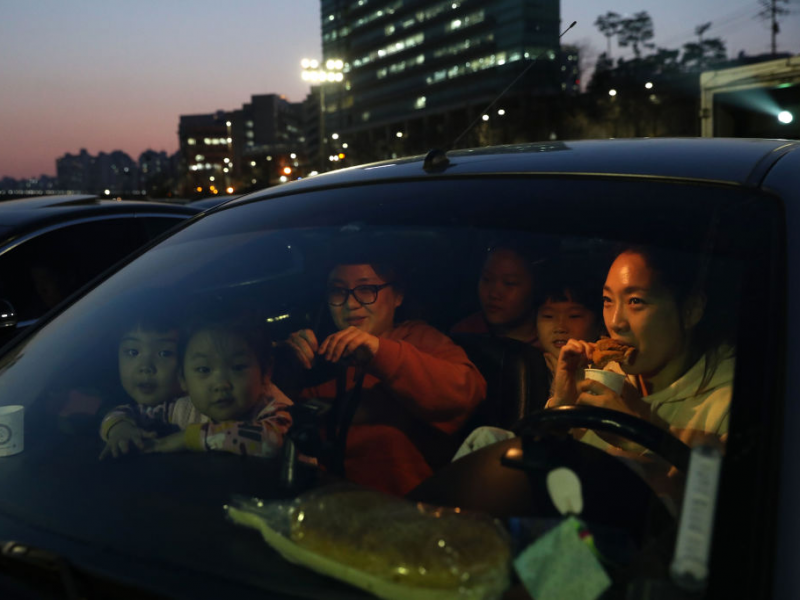
To him, the drive-in represents a safe haven for people getting cabin fever
"The drive-in to me is the perfect place, because people are leaving their house together, they can leave in their vehicle together, they can watch the movie in their vehicle together," he said, describing people's cars as an "extension of their living room."
To ensure everyone's safety, he says he's roped off every other parking spot so that cars each have 10 to 12 feet of space between them. After he saw people standing too close to each other at his new concession window, he decided to make online orders available ahead of movies, and now delivers snacks straight to cars.
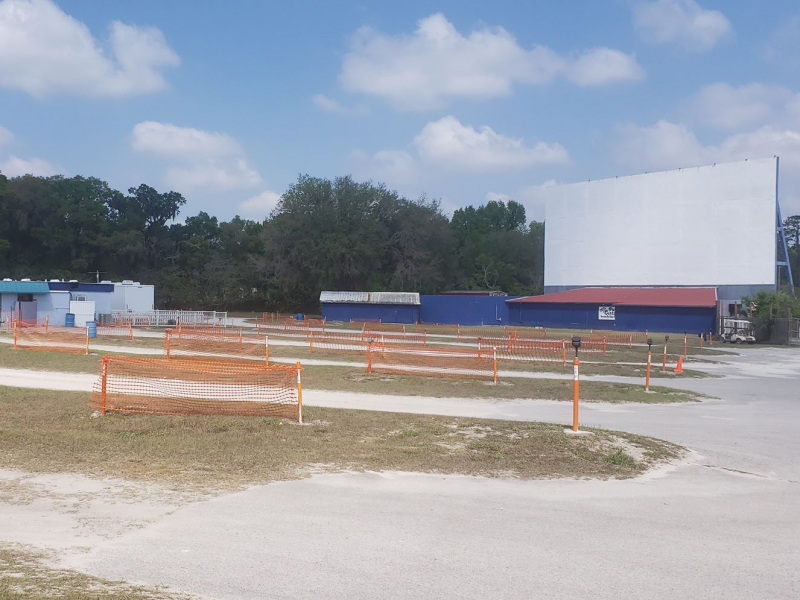
He says that people are "finding out that the drive-in is a safe haven. It's been this way throughout history, throughout wars, and violence, and disease."
He adds that he's doing everything in his power to work in the best interest of his staff and guests. "Someone asked me what it would take for me to close and I said 'Marshall Law'… or, if one of my employees gets sick," he said.
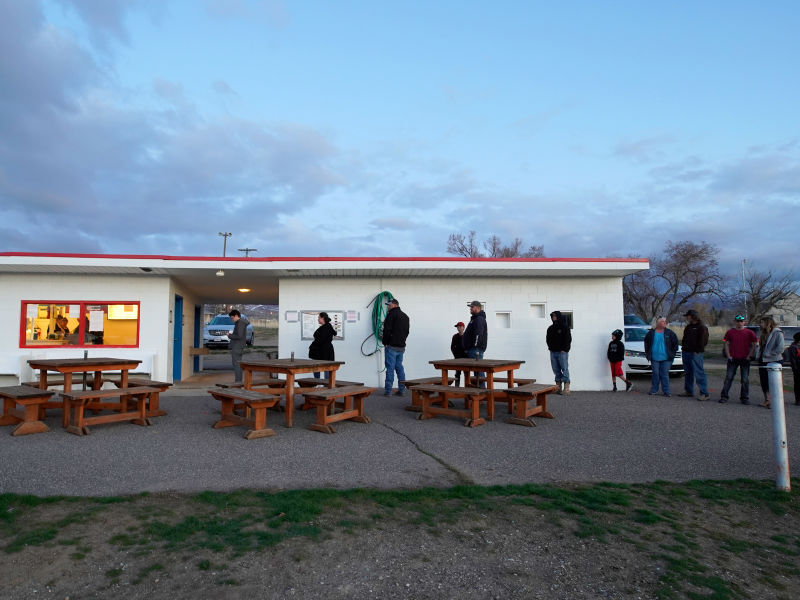
The Ocala has also recently become home to two non-denominational drive-in church services a week, in addition to movies. They did a test run and people loved it so much they expanded it to twice-weekly. "People loved the concept and couldn't wait to come back this week," Watzke said.
However, whether drive-ins can remain open depends on city ordinances and the constantly-changing pandemic response recommendations
Smith's Tulsa drive-in, for example, needed to obtain special permission to continue operations after the city ordered all movie theaters to close. According to Tulsa World, his argument was that the drive-in theater is more similar to a drive-thru window at a restaurant in terms of human contact than an indoor movie theater. He's also asking people to stay in their cars, keeping concession stands shut, and cleaning the bathrooms every 20 minutes.
While the CDC has recommended that all events in the US of 10 people or more should be canceled or held virtually, drive-ins fall into a gray area, as people stay in their cars. Besides purchasing tickets, which can often be done online, drive-ins require little to no human contact.

